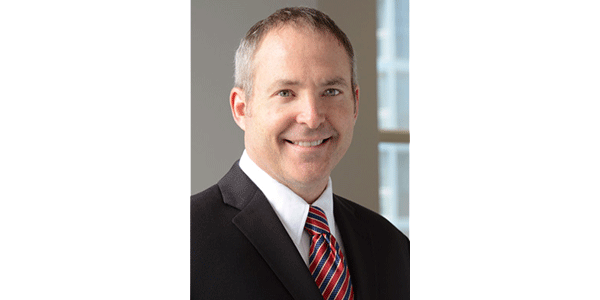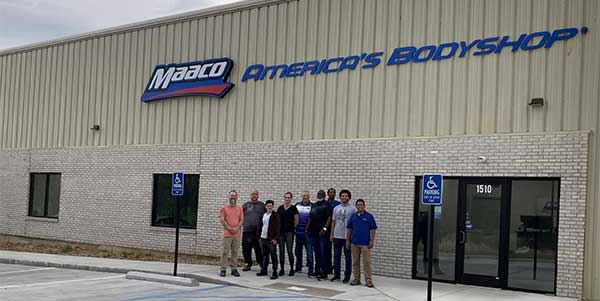Before we get too far into weighing the pros and cons of opening a second collision repair facility, I should tell you that I failed as a multiple-shop operator (MSO), so my opinion may be somewhat different from those owners who have achieved success with this business model. One thing for sure is that I learned a lot along the way.
We never hear about the struggles of MSOs, but we single-shop owners are told that we have two choices: expand and become MSOs or eventually go out of business because MSOs and consolidators are the wave of the future.
My Next Move
I was a successful shop owner throughout the late 1970s and ’80s, and it seemed to me that my next move should be to expand and add another location. Keep in mind this was at a time when we were still writing estimates by hand (1989) and Mitchell had just released its bar code scanning estimating system. Computers weren’t used and management programs were still only in dealerships. Our biggest innovation electronically was a fax machine that used photo-reactive paper rolls, which meant that the estimate eventually faded so you couldn’t read it. Nevertheless, the fax machine revolutionized our operation.
My mistakes were few, but I still lost a lot of money for three years straight before I opted to close one shop down. The clincher is that I opted to close my original location (the moneymaker) after 15 years of successful operation and stay with the new location. But I can honestly look back and say that my decision to open another shop is the reason I have a successful operation today. Ironically, my failure aided in my future success.
What I Did Wrong
You want to know what I did wrong? What led to the failure my closing the second shop and going back to single-shop ownership? Here’s a long list:
• I didn’t know the hidden cost of owning and running two locations.
• I didn’t have managers capable of running the shops without my help.
• I didn’t have a quality control system in place.
• I had no way to track theft and, as a result, experienced major theft.
• Computers weren’t around at the time, so all bookkeeping was done manually and, as a result, was very time-consuming.
• I focused on the new location so much that I neglected the original location, which was the moneymaker.
• I was under-financed, so I was always robbing one location to support the other.
• The managers I hired were more suited to be assistant managers and made many costly mistakes.
• I didn’t try to get financing until I was in trouble and then it was too late because my books reflected
the losses.
The hidden costs were surprising: two garagekeepers policies, two workers compensation policies, two phone bills plus a huge cell phone bill (this was 1989), two managers’ salaries, two electric bills, double payroll (less cash flow), two accounts receivables, etc. Everything was double except my cash flow, and that was my ultimate demise.
Our quality, something I had worked years to establish, decreased significantly and, as a result, our reputation got tarnished tremendously within a year. My reputation was being compromised daily because I made the mistake of thinking that quality would be automatic. After all, I had the same employees. But as they say, when the cat’s away, the mice come out to play. It got so bad that they were acting like flat-out thieves, sneaking through cash jobs with me unknowingly buying the parts for them.
It was too difficult to monitor losses until the bills came in, and by then it was too late. I would have $12,000 paint bills with no cars painted. These thieves opened up multiple parts accounts I wasn’t aware of for the same brands (three Ford accounts, for example). I was so focused on the new location that I didn’t monitor the old one close enough. Things were so much different then and much harder to manage.
What I Did Right
I didn’t do everything wrong. Here’s a list of things I did right:
• I made the new location nicer and better equipped than the original.
• I purchased the building at the new location.
• I started it in a potentially high-growth area.
• I cut my losses before it was too late and shut the original location down.
• I paid all of my bills and left no one hanging; I’m still proud of this today.
• I was able to maintain my credit.
• I learned to manage my shop by the numbers.
• I became a better businessman.
The new location was and still is my dream shop. We have the best of everything, so I ended up ahead of the industry. By purchasing the building, I was able to fix my overhead, which enabled me to expand into multiple buildings but one location using my own money.
Closing the original location allowed me to focus on the nicer, better-equipped shop where I owned the real estate (I leased the original location). By paying everything off, I felt like less of a failure. And by maintaining my credit, I was still able to get materials and parts on credit, which helped me to stay in business when I had zero cash flow.
I learned to trust only the numbers because the numbers don’t lie. I learned so much through this experience, and because I came so close to losing everything, it prepared me for any hard times that might come my way in the future.
I learned that the best time to borrow money is when you don’t need it; now, I make sure I’m over-financed in every situation or I won’t move forward.
The MSO Advantage
Many MSOs are really successful, so is this where the collision industry is heading? I really believe it’s too soon to tell, but I know of many MSOs that are doing everything right, and the entire industry is saying that they’re the wave of the future.
MSOs can offer more to an insurer as far and service and discounts. They have better bargaining power with vendors, and now they’re easily managed with one of the many management systems available today. Quality repairs are being completed, and the high customer satisfaction indexes are also indicating that they’re running this business model successfully. Plus, they’ve had the benefit of watching the failures of other MSOs and consolidators and have learned how to do it better.
Being an MSO could be really profitable, but in my case, I could never get both shops to make money consistently at the same time. I would make money at one and pay it all to the other because one would always be negative. If I could have had both of them making money each and every month, it would have been great, but that was just not the case. I was robbing Peter to pay Paul for the entire three years I ran two shops.
Business is Business
It still comes down to how well you run your company and manage your customer base. Maintaining your customer base is the key to the success of any body shop, whether it’s a single location or multiple locations.
No matter what the future brings, opening additional locations will not guarantee success. Just look at Circuit City and Best Buy – both companies offered the same things, and both had multiple locations, yet one of them failed. Whether you stay a single location or expand to additional locations, the bottom line is that it’s business. If you run your business well, your location or locations will be fine.
Opening Another Shop: What I Would Do Differently
If I were to open additional locations today, I would do a few things differently based on what I learned from my past failure:
• I would get more financing than I could ever need.
• I would make sure to have Standard Operating Procedures (SOPs) in place.
• I would never neglect my primary location.
• I would try to have at least one DRP so I could hit the ground running.
• I would hire only experienced managers or move them from the primary store.
• I would manage each location by the numbers weekly.
• I would keep all locations within 30 miles of each other.
• I would have each manager and estimator update me daily.
• I would have a full-time quality control manager at each location.
• I would mirror-match my existing location and operation procedures.
• I would never take money from one location to support the other location. The other location would need to learn to be self-sufficient.
Lee Amaradio Jr. is the president and founder of Faith Quality Auto Body Inc. in Murrieta, Calif. His 32,000-square-foot, state-of-the-art facility employs 65 full-time employees and does $7 million in gross sales. In business since 1979, Lee attributes his success to having a great team of quality people supporting him. Lee says that he “sees the handwriting on the wall” and believes that “now is the time for us to reclaim our industry, before it’s too late.” He can be reached at [email protected].














